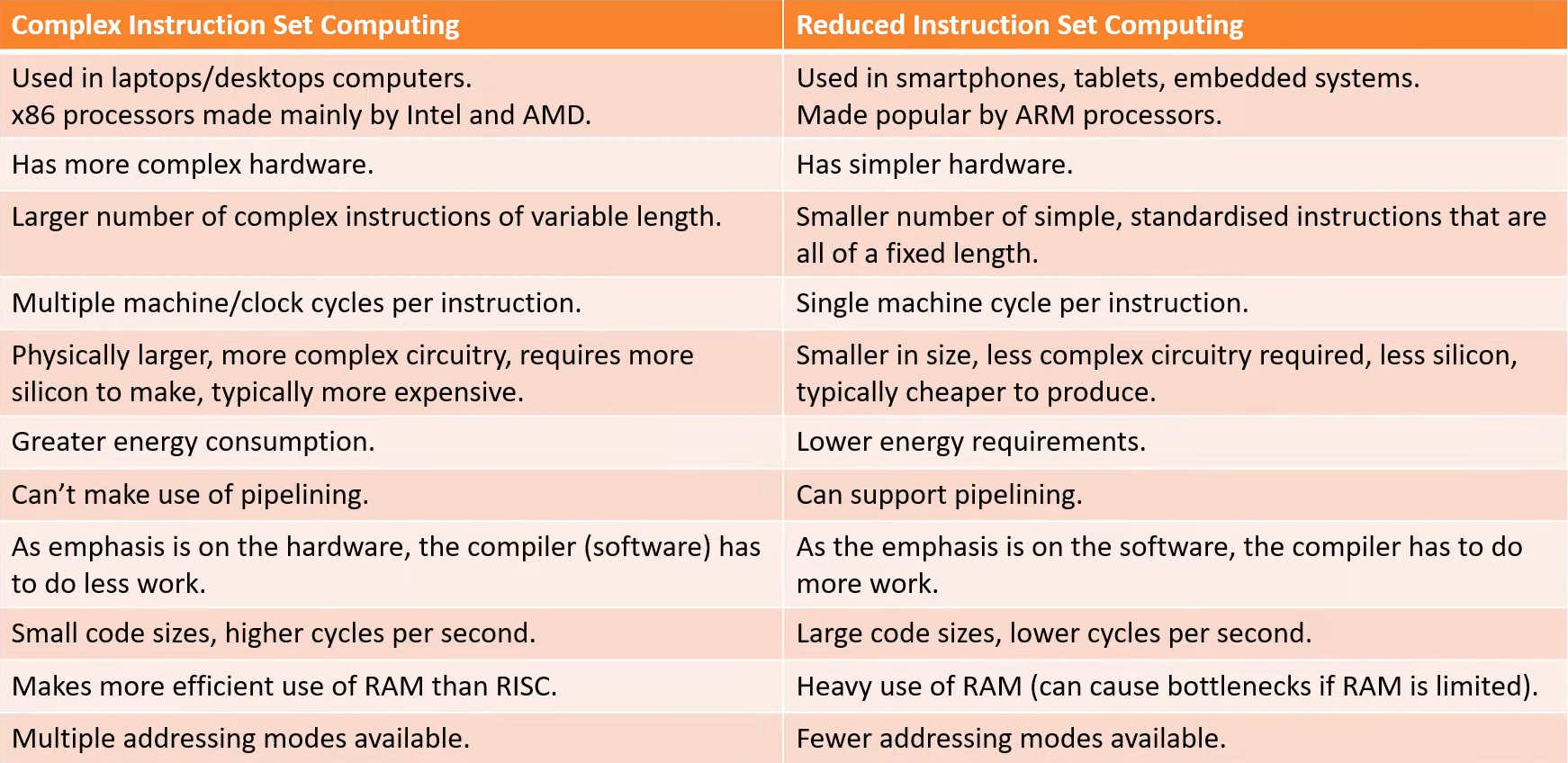SLR02 - Types of Processors
1/15
There's no tags or description
Looks like no tags are added yet.
Name | Mastery | Learn | Test | Matching | Spaced | Call with Kai |
|---|
No study sessions yet.
16 Terms
What is an instruction set?
Set of all instructions written in machine code that can be recognised + executed by CPU
CISC, RISC
CISC
Complex Instruction Set Computers: Aims to complete task in as few lines as possible
Includes complex instruction
Less common today
RISC
Reduced Instruction Set Computer: aims to use simple instructions that will be executed within single clock cycle
Need to separate complex instructions into simpler commands
Characteristics of CISC
Used un laptops / desktop computers
Complex hardware
Emphasis on hardware, compiler less work to do
Physically larger, more silicon, more expensive
Greater energy consumption
Large num complex instructions
Multiple clock cycles per instruction
Can’t make use of pipelining
Makes more efficient use of RAM than RISC
Multiple addressing modes available
Characteristics of RISC
Used in smartphones, tablets, embedded systems
Simpler hardware
Smaller size, less complex, less silicone, cheaper produce
Emphasis on software = compiler more work
Low energy required
Smaller num simple, instructions of fixed length - standardised
Single cycles per instruction
Can support pipelining
Heavy use of RAM
Fewer addressing made available
CISC vs RISC

Multicore processor
More than one processing unit in a single processor
That can independently process instructions at the same time
CMPS
Chip multiprocessors - manufacturers integrate cores onto a single physical chip as a CPU - actually a CMP containing multiple CPU cores
Performance of a multicore processor is further enhanced by
One chip shared cache
Inter-core communication
Limitations of multicore
Overheads involved with inter-core communications
Some programs can’t make maximum use of all cores
Parallel processing
The processing of program instructions by dividing them between multiple cores, while one processor fetching instruction, separate unit decoding previous, other unit executing
What limits parallel processing
Task being carried out
If software designed for parallel processing
Co-processor
Additional processor used for a specialised task
To improve overall speed of computer by executing concurrently with the main CPU
Difference between CPUs & GPUs
CPUs excel at performing complex operation on small data sets
GPUs better for simpler operation on large data sets
Why are GPUs good at rendering graphics?
GPU able to carryout thousands of floating-point operation much quicker due to the benefits of its bespoke design for parallel processing
Other uses of GPUs
Any situation that requires processing thousands of simple calculations on multiple points of data performed quicker on GPU, e.g.:
Oil exploration
Machine Learning
Statistical analysis